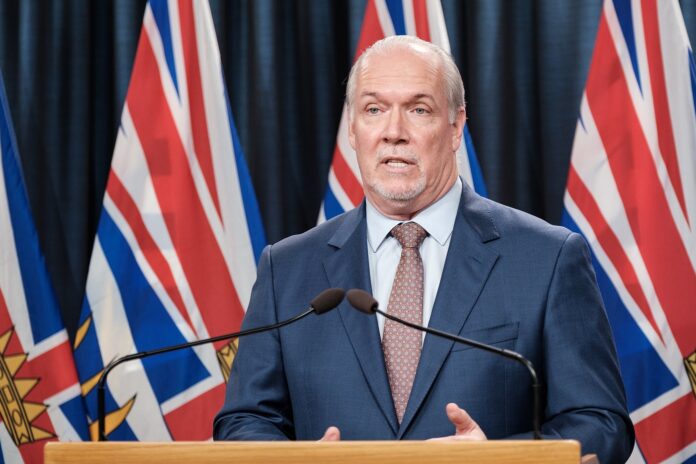THE Province of British Columbia on Tuesday formally extended the provincial state of emergency, allowing health and emergency management officials to continue to use extraordinary powers under the Emergency Program Act (EPA) to support the Province’s COVID-19 pandemic response.
The state of emergency is extended through the end of the day on April 27 to allow staff to take the necessary actions to keep British Columbians safe and manage immediate concerns and COVID-19 outbreaks.
“This is a difficult time for everyone,” said Premier John Horgan. “With the vaccine program well underway we can see hope on the horizon, but higher case numbers and variants mean that we need to draw back in some places instead of opening up. I want to thank British Columbians for their hard work so far, and I’m going to ask you to keep putting your shoulders to the wheel for a while longer so we can all get through this safely and recover with the strength this province is known for.”
The extension of the provincial state of emergency is based on recommendations from B.C.’s health and emergency management officials. The original declaration was made on March 18, 2020, the day after Dr. Bonnie Henry, Provincial Health Officer (PHO), declared a public health emergency.
“Public health orders are in place to keep us safe so we can eventually loosen restrictions and return to a more normal life,” said Mike Farnworth, Minister of Public Safety and Solicitor General. “If people want to get back to travelling, gathering and doing all those things we’ve been missing for so long, we all have to follow the orders and guidance. For those who just can’t seem to get that message, enforcement measures will continue to ensure public safety. Police and other enforcement agencies are working hard to make sure the efforts of the majority of British Columbians aren’t dampened by the selfishness of a few.”
The Province continues, with the support of police and other enforcement officials, to use measures under the EPA to limit the spread of COVID-19, including issuing tickets for owners, operators and event organizers who host an event or gathering contravening the PHO’s orders.
On July 10, 2020, the COVID-19 Related Measures Act came into force, enabling provisions created for citizens and businesses in response to the COVID-19 pandemic to continue as needed should the provincial state of emergency end.
Facts about B.C.’s state of emergency
* Between August 21, 2020, and March 26, 2021, 1,709 violation tickets were issued, including:
– 272 $2,300 tickets to owners or organizers contravening the provincial health officer’s (PHO) order on gatherings and events;
– 51 $2,300 violation tickets for contravention of the PHO’s Food and Liquor Serving Premises Order;
– 1,368 $230 tickets issued to individuals who failed to comply with PHO orders; and
– 18 $575 tickets to individuals who promoted or attended a non-compliant event.
* The Ministry of Public Safety and Solicitor General is continually working to align the Emergency Program Act (EPA) enforcement orders with those of the restrictions enacted by the PHO.
* Additionally, since the pandemic began, police agencies in British Columbia have issued 134 violation tickets to individuals who were in contravention of the Federal Quarantine Act, totalling $238,194.
* The purpose of the Quarantine Act is to protect public health by taking comprehensive measures to prevent the introduction and spread of communicable diseases.
* Since the start of the pandemic, WorkSafeBC has conducted 25,356 COVID-19 related work site inspections.
* On December 16, 2020, the Province announced enhanced enforcement measures to keep British Columbians safe and mitigate the impacts of COVID-19. This included strengthening COVID-19 fine collection measures and asking provincial enforcement officers to support police and increase enforcement by issuing violation tickets during their normal course of duties or when in public places.
* Declarations of provincial states of emergency may be issued by the minister responsible under the EPA.
* The provincial government can extend the period of a declaration made by the minister responsible for further periods of up to 14 days at a time.













